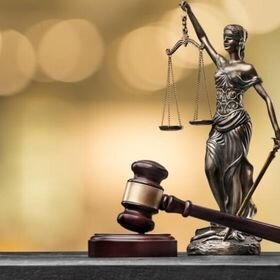Best Government Relations & Lobbying Lawyers in Jakarta
Share your needs with us, get contacted by law firms.
Free. Takes 2 min.
List of the best lawyers in Jakarta, Indonesia
About Government Relations & Lobbying Law in Jakarta, Indonesia
The field of Government Relations & Lobbying in Jakarta, Indonesia involves the activities of influencing public officials and shaping public policy to achieve desired legal, regulatory, or political outcomes. As the capital of Indonesia, Jakarta serves as the center of political, economic, and administrative power of the country, making it a critical location for lobbying efforts. The Indonesian government has established specific regulations governing these activities to ensure transparency and fairness in political decision-making. Understanding these laws is essential for organizations and individuals who engage in lobbying to ensure compliance and maintain ethical standards.
Why You May Need a Lawyer
People and organizations may require legal advice in Government Relations & Lobbying for several reasons:
- To navigate the complex legal framework governing lobbying activities in Jakarta, ensuring adherence to local laws and regulations.
- To effectively communicate and advocate for policy changes in government circles.
- To establish and maintain ethical standards while engaging in lobbying efforts.
- To draft or review contracts and agreements related to lobbying activities.
- To resolve disputes or legal challenges that may arise in the context of government relations and lobbying.
Local Laws Overview
The key aspects of local laws related to Government Relations & Lobbying in Jakarta include:
- The Transparency Law: Requires disclosures of lobbying activities and financial expenditures to ensure transparency and accountability.
- Anti-Corruption Regulations: Designed to prevent corruption and unethical practices in government relations, with stringent penalties for violations.
- Registration Requirements: Lobbyists may be required to register with governmental authorities, disclosing their clients and lobbying interests.
- Foreign Influence Legislation: Imposes additional reporting and compliance obligations on foreign entities engaging in lobbying activities.
- Ethical Standards and Codes of Conduct: Establishes guidelines for ethical lobbying, focusing on integrity, honesty, and respect for democratic processes.
Frequently Asked Questions
What is the process for registering as a lobbyist in Jakarta?
Individuals or organizations seeking to register as lobbyists must complete the necessary forms provided by the relevant governmental department, disclosing their lobbying interests and affiliations.
Are there any restricted lobbying activities in Jakarta?
Yes, certain activities may be restricted or prohibited, such as offering gifts or inducements to public officials to influence decisions.
What are the penalties for violating lobbying laws in Indonesia?
Penalties can include fines, imprisonment, and a ban on conducting further lobbying activities. Specific penalties depend on the nature and severity of the violation.
How can transparency in lobbying activities be ensured?
Transparency can be ensured through regular disclosure of lobbying activities, financial records, and compliance with reporting requirements set by the government.
Can foreign entities engage in lobbying in Jakarta?
Yes, but they must comply with additional reporting obligations and regulations concerning foreign influence on domestic policy.
Are there any codes of conduct for lobbyists in Jakarta?
Yes, lobbyists are expected to adhere to ethical guidelines emphasized by national and international standards for integrity and transparency.
How do anti-corruption laws impact lobbying activities?
Anti-corruption laws necessitate stringent compliance measures to avoid corrupt practices, with severe penalties for transgressions.
What role do lawyers play in government relations and lobbying?
Lawyers assist with compliance, negotiation, drafting of agreements, and resolving disputes while ensuring adherence to legal and ethical standards.
How does the public access information about lobbying activities?
The public can access information through databases and reports published by the government in alignment with transparency laws.
What steps can be taken to resolve disputes in lobbying activities?
Disputes can be resolved through legal negotiation, arbitration, or court proceedings, depending on the circumstances and parties involved.
Additional Resources
Here are some resources and organizations that can provide valuable support:
- Indonesian Government Agencies: They provide information and forms for lobbyist registration and compliance.
- Transparency International Indonesia: An organization that promotes integrity and transparency in lobbying and governance.
- Law Firms Specializing in Government Relations: These firms offer expert legal advice and representation in lobbying matters.
- Professional Associations for Lobbyists: They can offer guidance, training, and support for best practices in lobbying.
Next Steps
If you need legal assistance in Government Relations & Lobbying, consider the following steps:
- Assess your needs and determine the specific legal support required.
- Research and identify reputable law firms or legal advisors with expertise in government relations and lobbying in Jakarta.
- Schedule consultations to discuss your situation and explore legal strategies.
- Collaborate with your legal advisor to navigate complex legal processes and ensure compliance with all regulations.
- Stay informed about changes in local laws and regulations affecting government relations and lobbying activities.
Lawzana helps you find the best lawyers and law firms in Jakarta through a curated and pre-screened list of qualified legal professionals. Our platform offers rankings and detailed profiles of attorneys and law firms, allowing you to compare based on practice areas, including Government Relations & Lobbying, experience, and client feedback.
Each profile includes a description of the firm's areas of practice, client reviews, team members and partners, year of establishment, spoken languages, office locations, contact information, social media presence, and any published articles or resources. Most firms on our platform speak English and are experienced in both local and international legal matters.
Get a quote from top-rated law firms in Jakarta, Indonesia — quickly, securely, and without unnecessary hassle.
Disclaimer:
The information provided on this page is for general informational purposes only and does not constitute legal advice. While we strive to ensure the accuracy and relevance of the content, legal information may change over time, and interpretations of the law can vary. You should always consult with a qualified legal professional for advice specific to your situation.
We disclaim all liability for actions taken or not taken based on the content of this page. If you believe any information is incorrect or outdated, please contact us, and we will review and update it where appropriate.
















